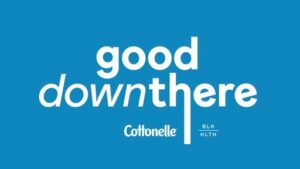
Colorectal cancer is a serious disease that affects individuals of all races and ethnicities, but it has a disproportionately high impact on Black communities. According to the American Cancer Society, Black individuals have a 20% higher incidence rate of colorectal cancer and a 40% higher mortality rate compared to non-Hispanic white individuals (American Cancer Society, 2021).
In 2022, with there help of Cottonelle and Blk Health, SOME began distributing colorectal cancer screening kits to those experiencing poverty and homelessness. The kits included instructions on how to self-administer a fecal immunochemical test (FIT) and a pre-stamped envelope to send the sample to a lab for analysis. While the initiative was designed to increase early detection of colorectal cancer, SOME soon discovered that the screening kits were having a disproportionately low impact on Black communities. After investigating further, they found that several barriers were preventing Black individuals from participating in the screening process.
One significant barrier was a lack of awareness and education about colorectal cancer and the importance of screening. Many Black individuals didn’t understand the risks and symptoms associated with the disease, making them less likely to take the necessary steps to detect it early. Another barrier was a lack of access to healthcare. Black individuals were more likely to be uninsured or underinsured, making it difficult for them to afford regular doctor’s visits and preventative screenings. This lack of access to healthcare is especially troubling given the higher incidence and mortality rates of colorectal cancer in Black communities.
SOME recognized the need to address these barriers and began working with Blk Health and Cottonelle, to provide education and resources about colorectal cancer. Because of this partnership SOME could offer free screenings for those who couldn’t afford them. These outreach efforts extended past 60 O. St, throughout all of SOME’s housing continuum, and SOME’s Conway Center on Benning Road.
Recognizing the importance of meeting people where they are through this targeted outreach, SOME was able to increase the number of Black individuals completing the FIT and taking proactive steps towards their health. While SOME’s colorectal cancer screening initiative was a step in the right direction, the disproportionate impact on Black communities highlights the need for ongoing efforts to address healthcare disparities. By providing education and resources and working to increase access to healthcare, SOME continues to ensure that everyone has the opportunity to receive life-saving screenings and care.
